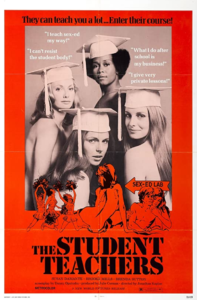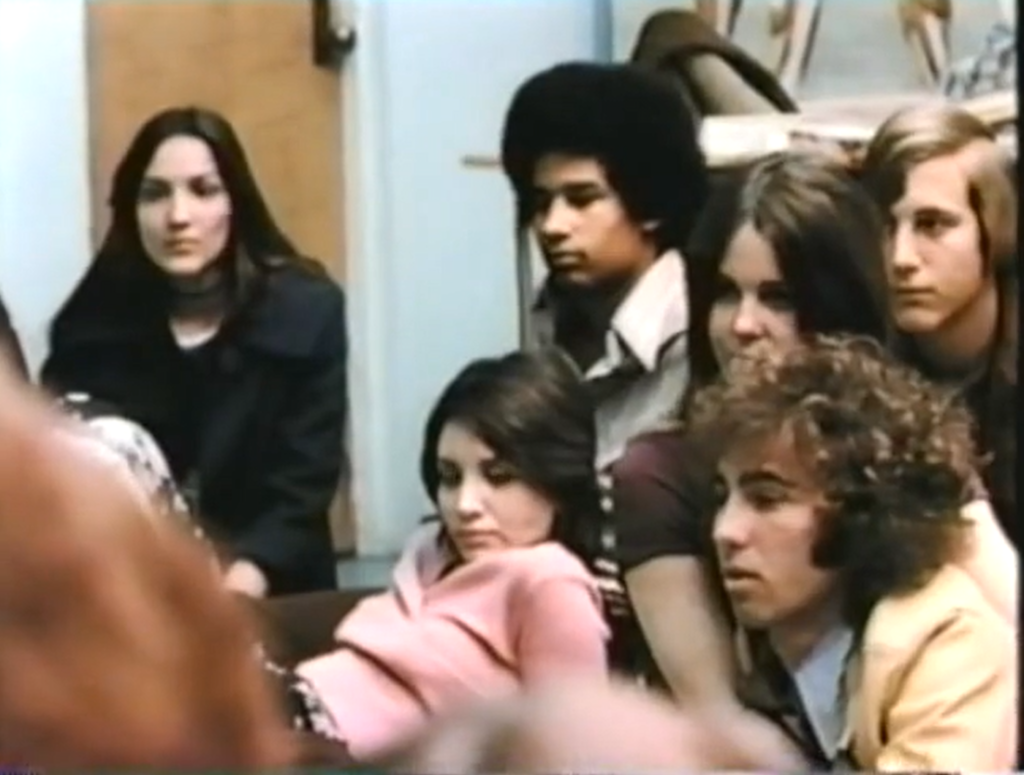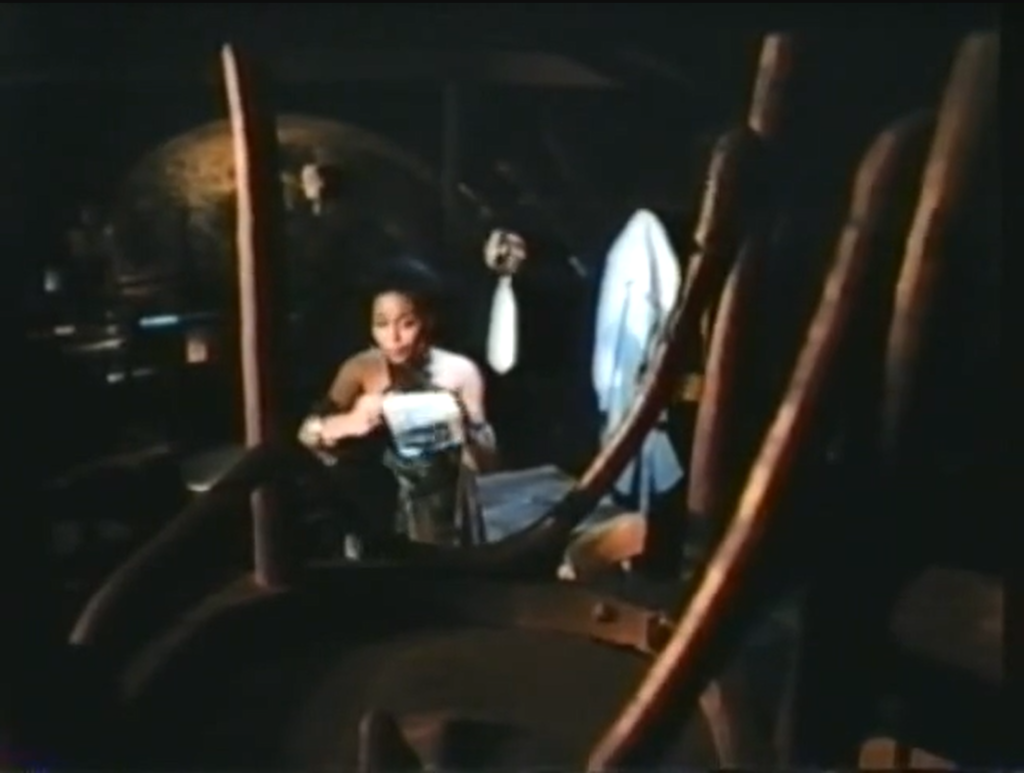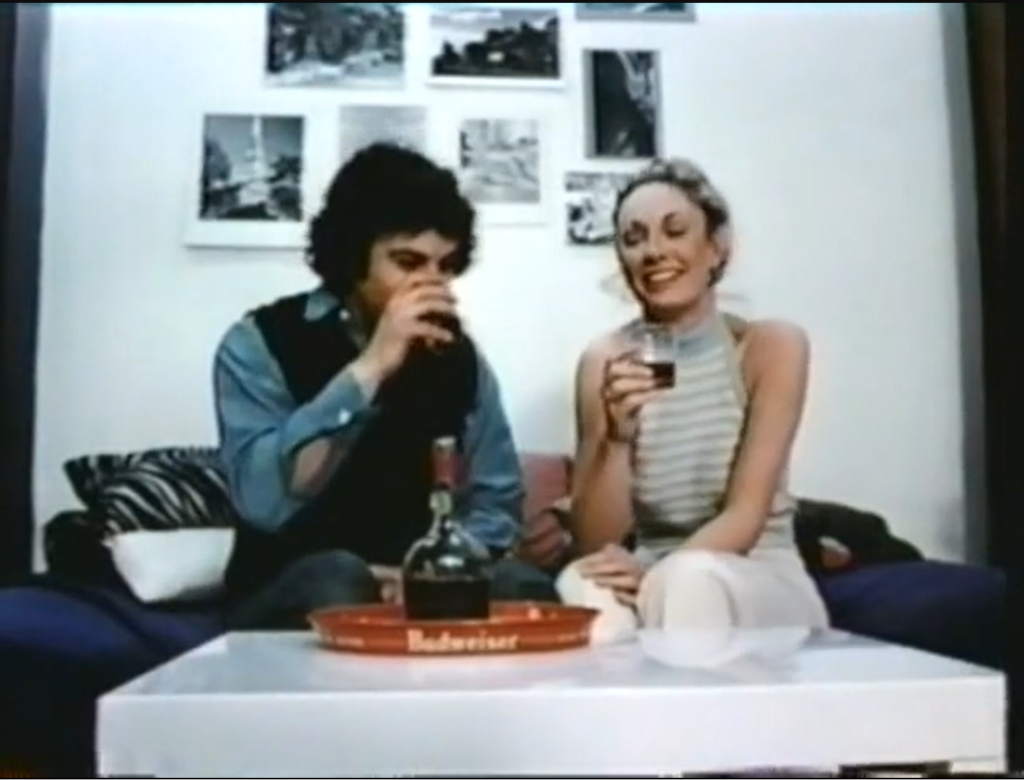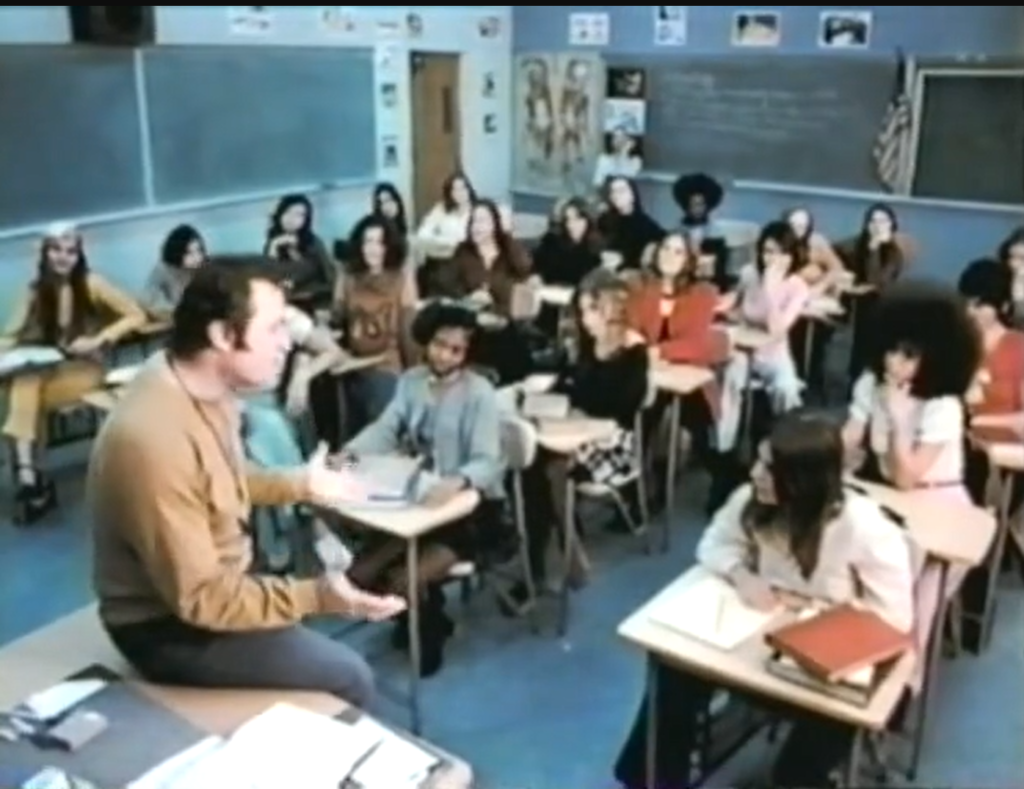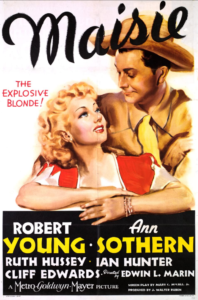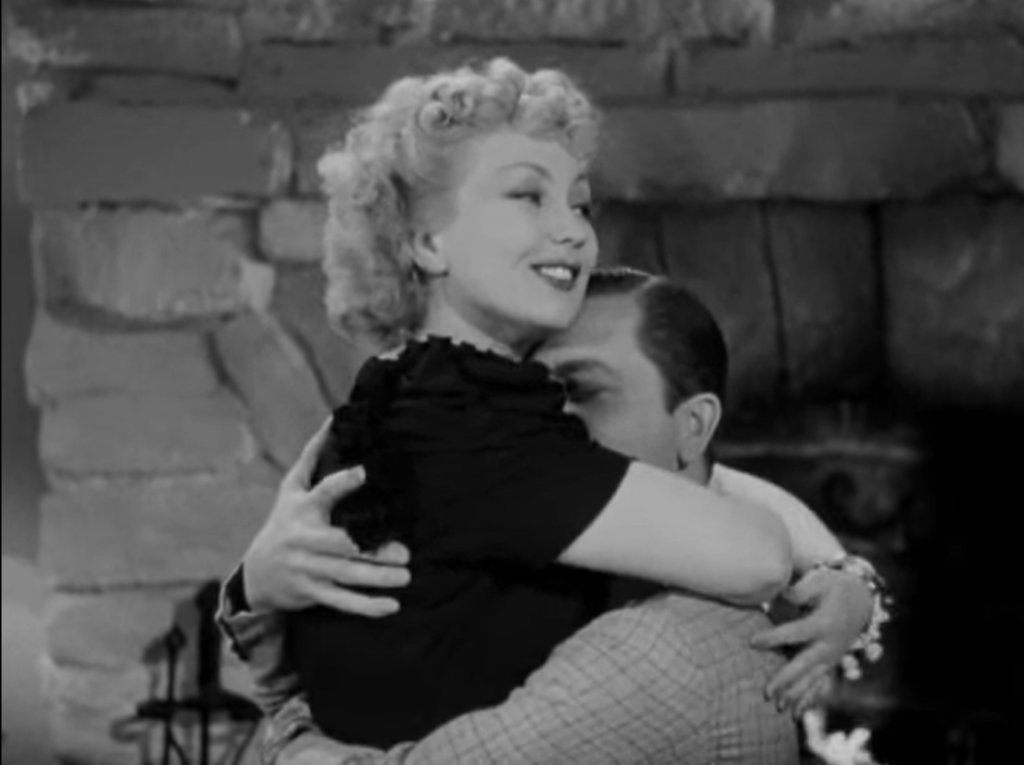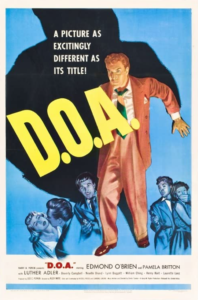|
Genres, Themes, Actors, and Directors:
- Amateur Sleuths
- Edmond O’Brien Films
- Flashback Film
- Living Nightmare
- Murder Mystery
- Neville Brand Films
Response to Peary’s Review:
As Peary notes, this “first-rate melodrama” by DP-turned-director Rudolph Mate features an “unusual, intriguing premise”, one which allows its protagonist — Edmond O’Brien in his most iconic role as Frank Bigelow — to become “one of the first movie heroes to have no fear of being killed”.
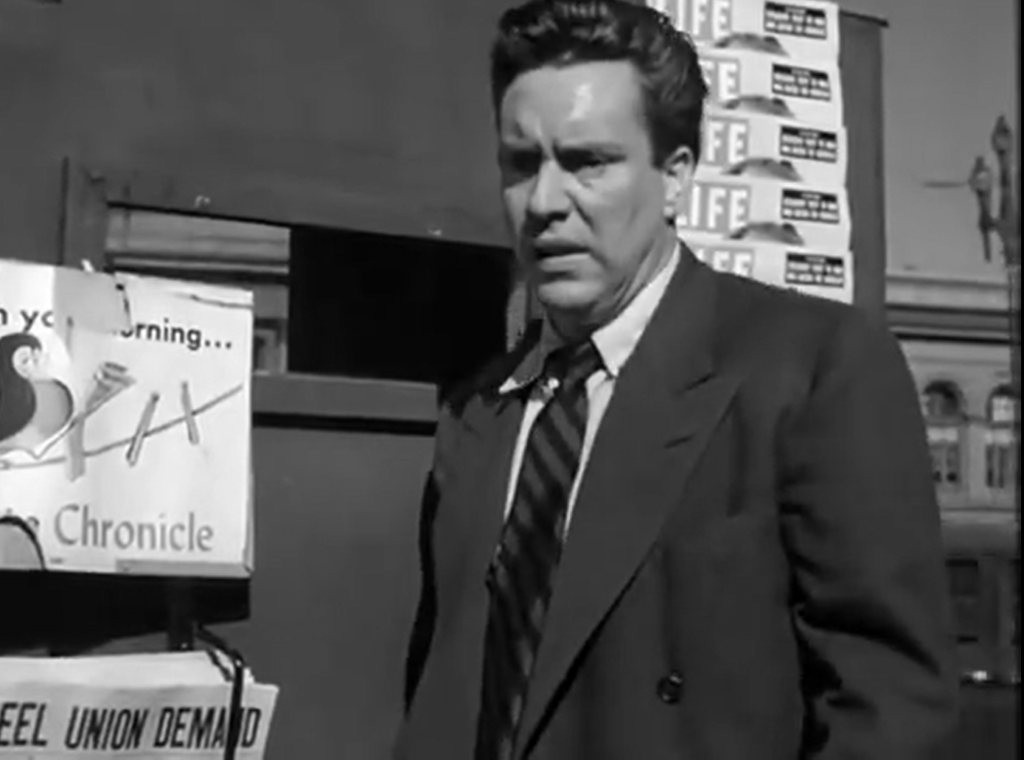
While “the story gets a bit confusing” (and thus tends to drag during its second third), the film as a whole remains compelling, and, amazingly enough, never feels “too morbid to sit through” despite knowing that Bigelow is done for from the beginning. Indeed, the flashback-heavy script features a surprising amount of levity, particularly during the early San Francisco hotel sequences, as Bigelow ogles every reasonably attractive female in the joint (and Dimitri Tiomkin’s energetic score adds silly sound-effect punctuations).
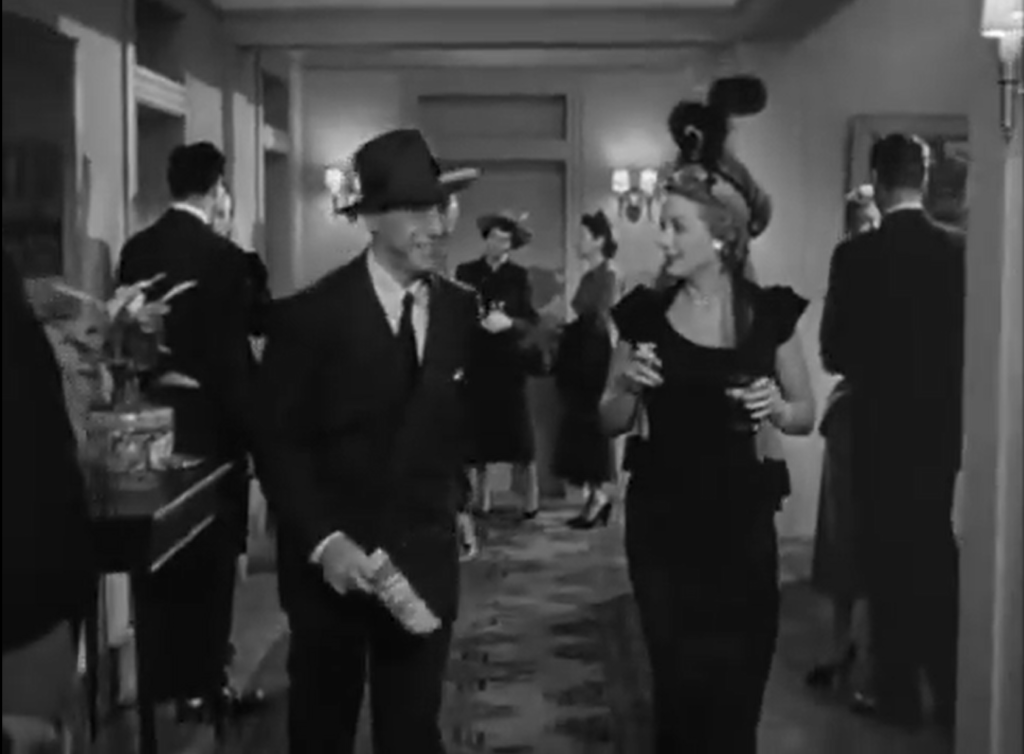
Meanwhile, the supporting cast’s B-level performances nearly all border playfully on camp: watch Pamela Britton (as Bigelow’s clingy secretary girlfriend) run an emotional gamut from flirtatious to pissy to maudlin to rapturously romantic:
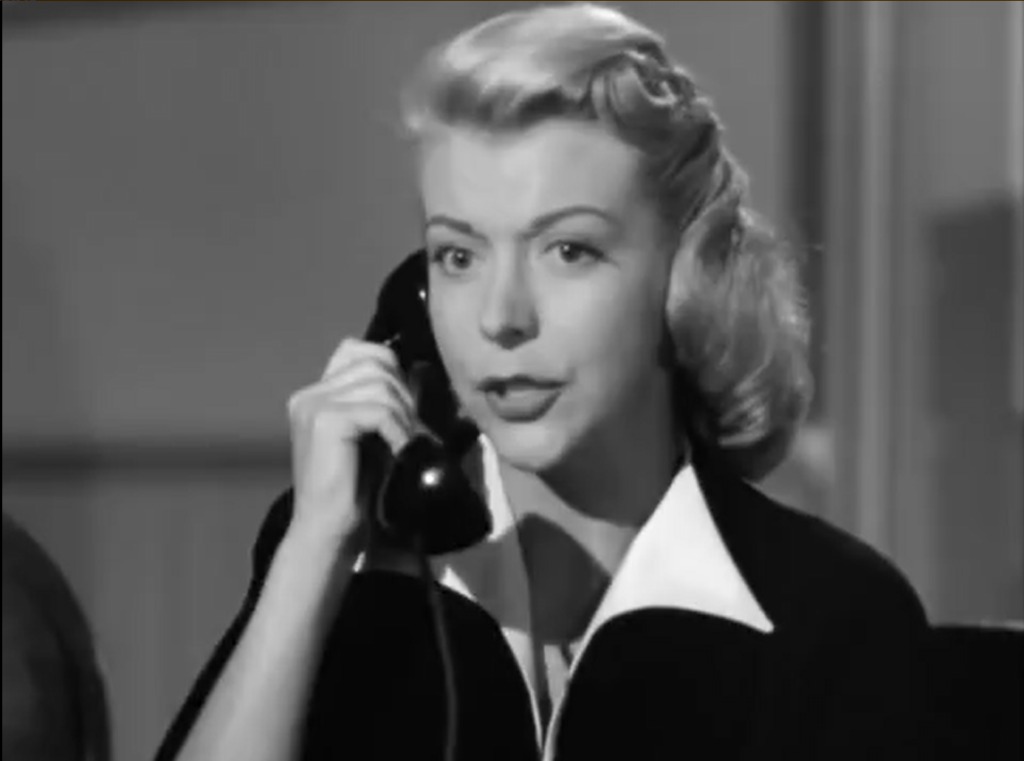
or toothy Neville Brand in his screen debut as a psycho thug with shifty eyes.
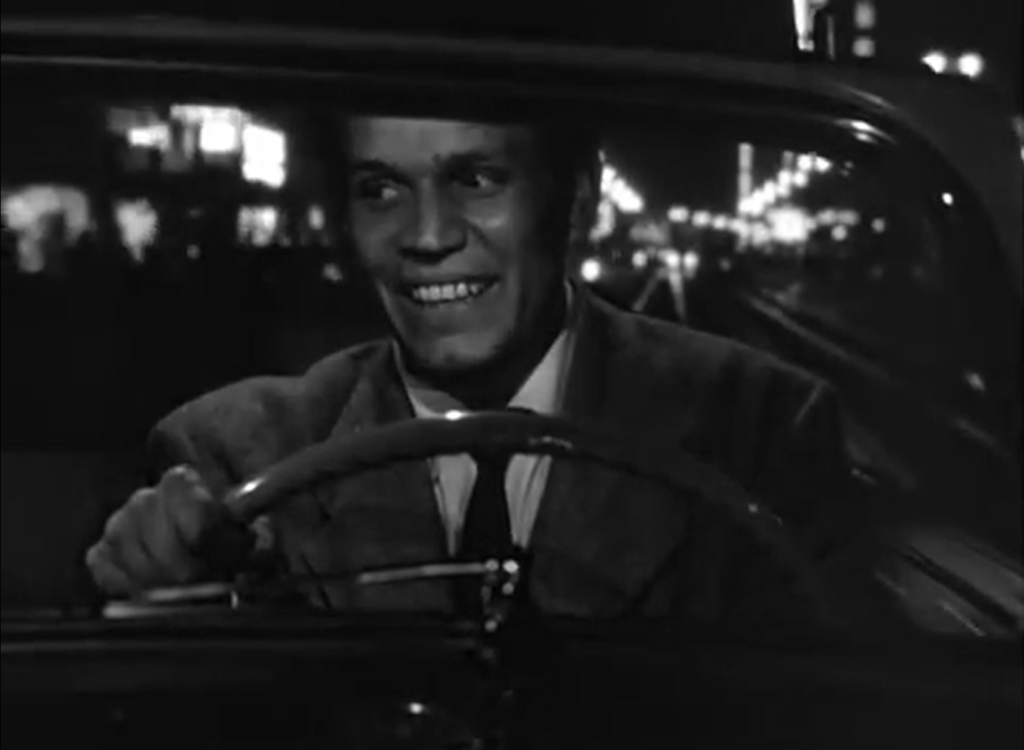
Some have complained that cinematographer Ernest Laszlo fails to establish noir-ish contrasts in lighting, but this ultimately adds to the film’s effectiveness: Bigelow’s nightmarish situation — taking place in real-life San Francisco and Los Angeles locales:
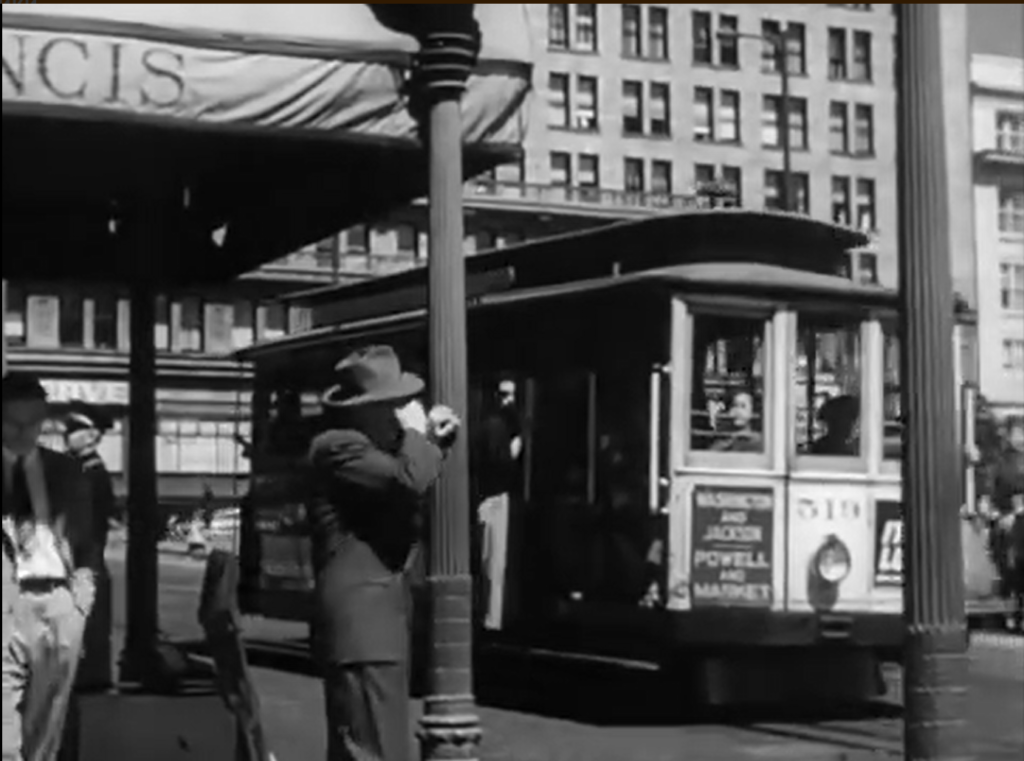
— is very much embedded within day-to-day reality; the scary point here is that anyone (you, me) is at risk for murder simply by being alive. And it should be noted that while Bigelow may be essentially an “innocent nice guy”, he does act like a bit of an immature lout, given that he can’t wait to get away from his fiancee, and considers sleeping with an attractive woman he’s just met at a bar:
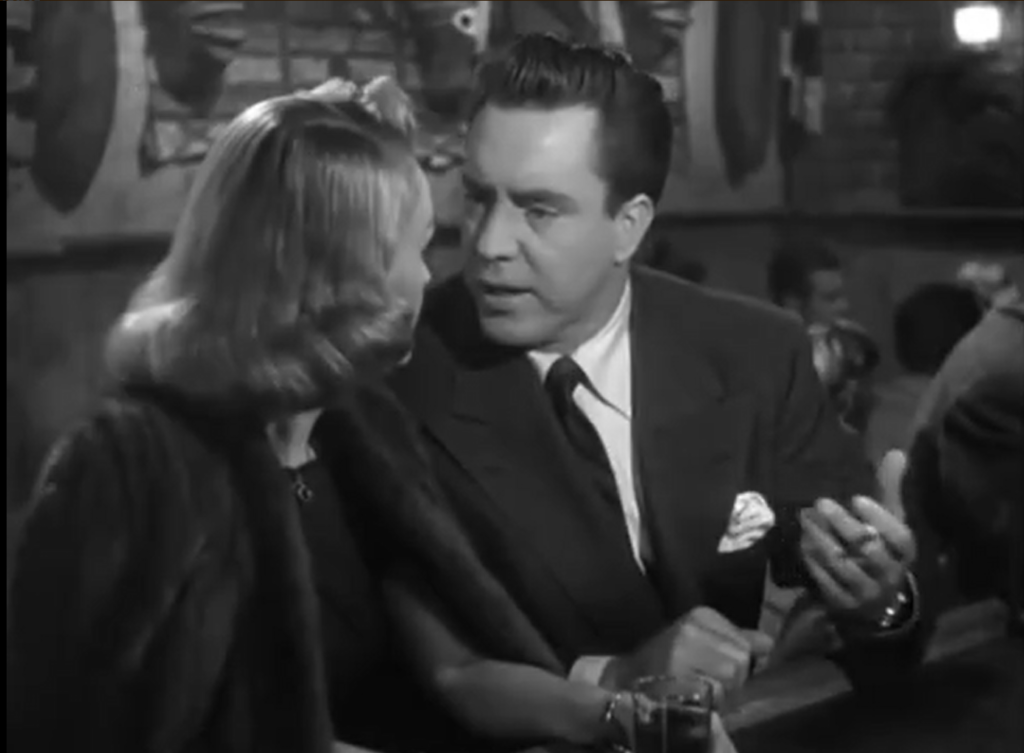
To this end, it could be argued (along the lines of 1950s morality) that he “deserves” his fate. Indeed, the story is framed as an unwitting character arc, with Bigelow forced to recognize — too late — the folly of his ways.
Redeeming Qualities and Moments:
- Edmond O’Brien as Bigelow
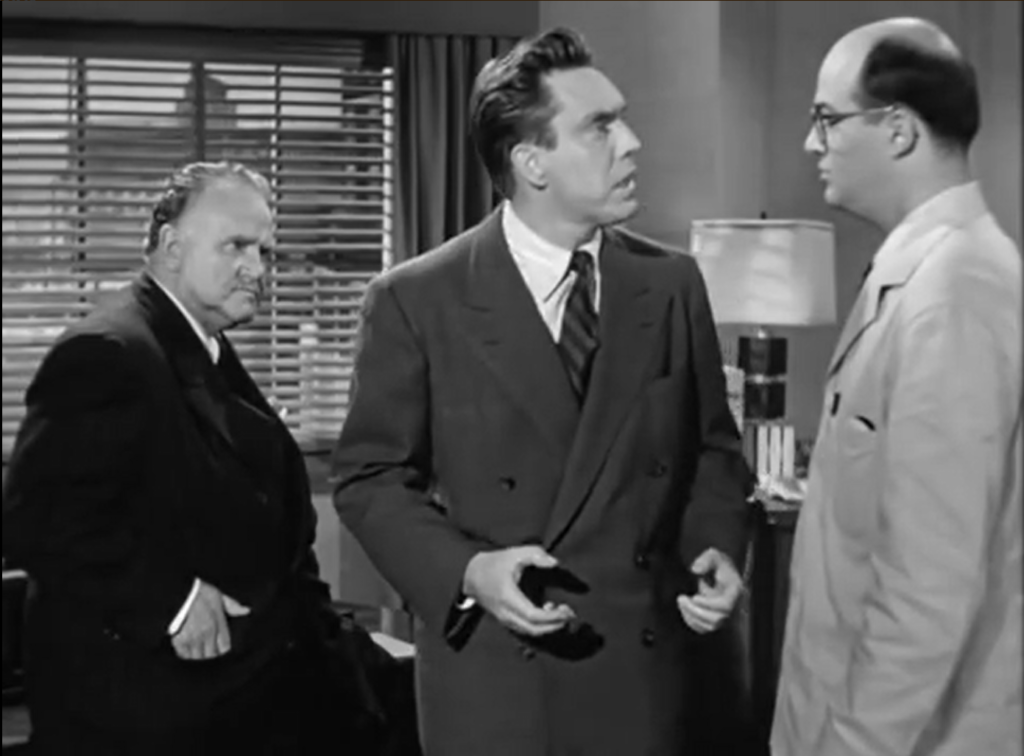
- An effectively nightmarish script
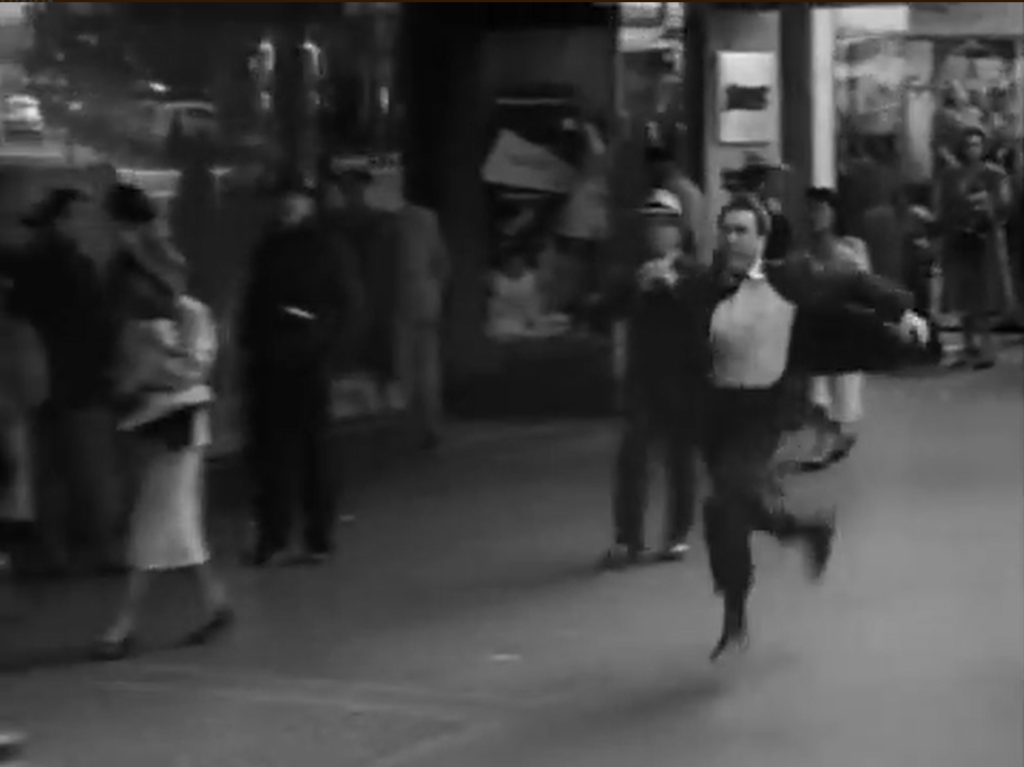
- Excellent use of San Francisco and Los Angeles locales
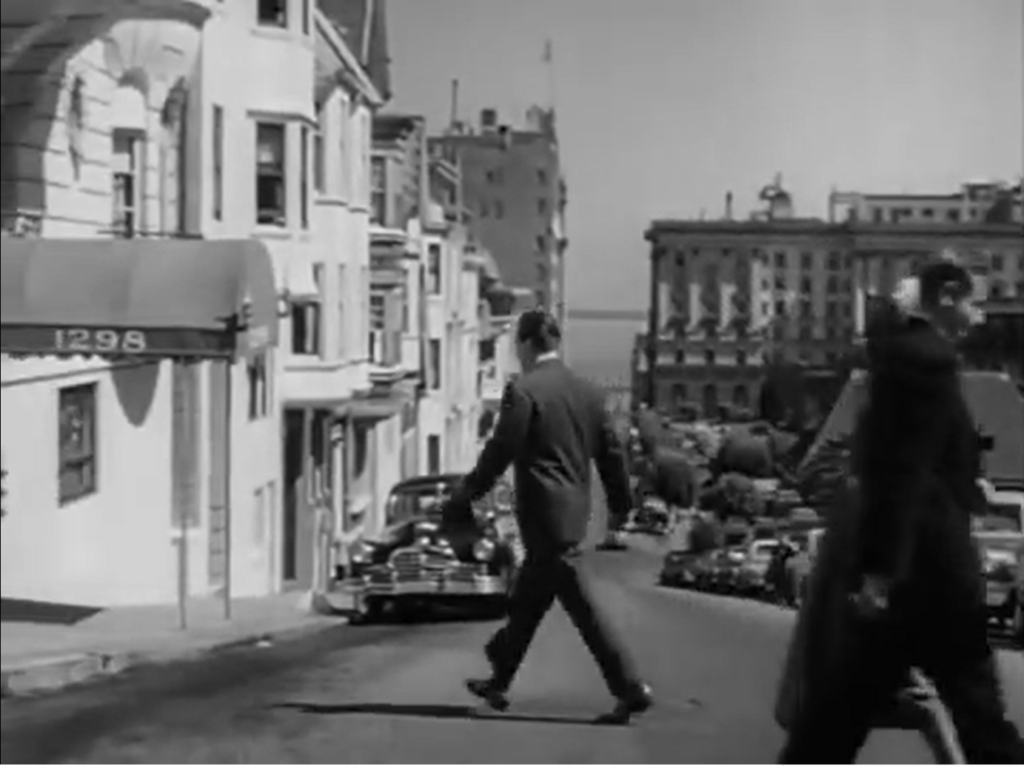
- Neville Brand (in his screen debut) as a psychotic hood
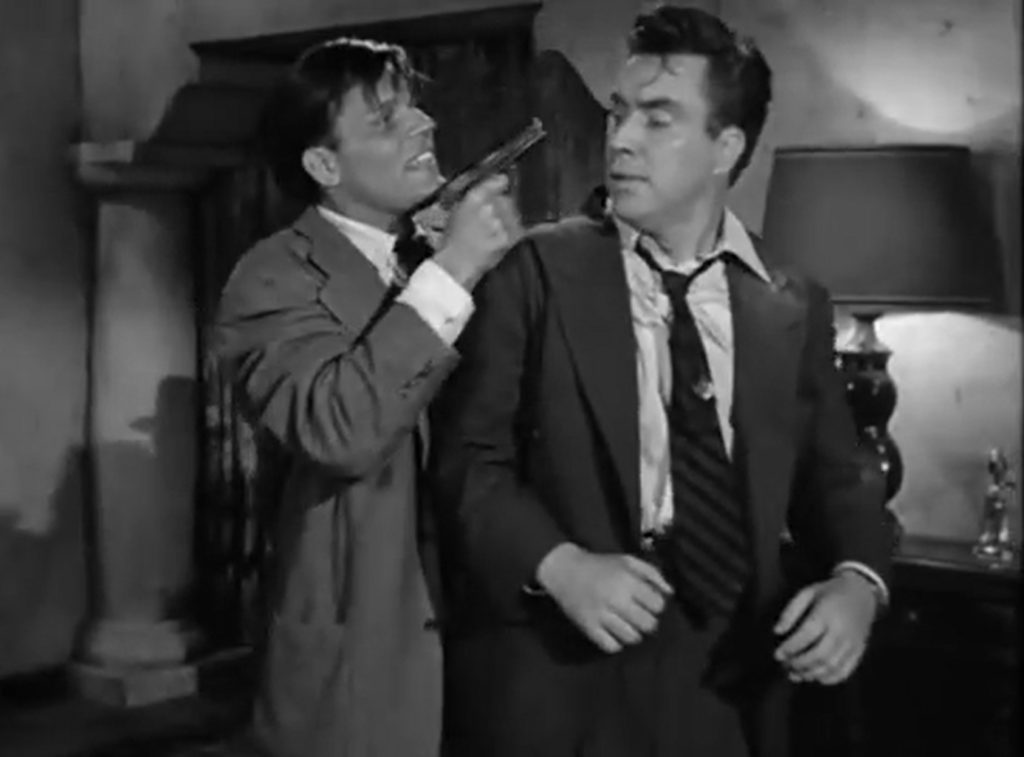
Must See?
Yes, as a classic of pulp noir.
Categories
Links:
|
